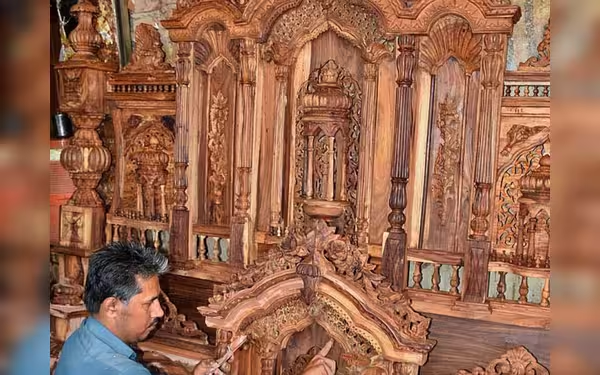Thursday, July 4, 2024 06:32 PM
Karachi Furniture Industry Seeks Policy Support for Growth
- Karachi leads in furniture exports, but faces challenges in production costs.
- Proposed solutions include fiscal incentives, training programs, and modern technology adoption.
- Challenges include high transport costs, labor expenses, and limited technology adoption.
 Image Credits: nation_pk
Image Credits: nation_pkThe furniture industry in Karachi, Pakistan, seeks policy support to overcome challenges in production costs, transportation, and labor expenses. Proposed solutions include fiscal incentives, training programs, and modern technology adoption to enhance global competitiveness.
Karachi, known as the economic hub of Pakistan, is currently facing challenges within its furniture industry due to high production costs. While Pakistan is recognized for its high-quality furniture, key regions for furniture production include Gujrat, Peshawar, Lahore, Karachi, and Chiniot. Karachi stands out as a leader in furniture exports, closely followed by Lahore and Peshawar. Despite Pakistan's skilled craftsmanship and innovative furniture designs, the country's global market share in the industry remains below its full potential.
The furniture industry in Karachi is advocating for fiscal incentives from policymakers to unlock its true capabilities. Some of the proposed suggestions include easier access to credit, tax breaks for business expansion, participation in international exhibitions, and government support for marketing efforts in Europe. The Vice-President of the Furniture Makers Association highlights the importance of training programs to enhance manufacturing skills and meet the increasing foreign demand for modern furniture.
However, the industry is encountering various challenges such as escalating transport costs due to fuel price hikes, increasing labor expenses without a corresponding improvement in quality, and limited adoption of modern technology. The lack of training centers for entrepreneurship and craftsmanship further impedes the growth of the industry. Additionally, the absence of formal education in furniture design across Pakistan reflects a lack of interest and demand, especially in a low-wage economy.
The furniture industry in Karachi is at a critical juncture, grappling with significant challenges that hinder its growth and global competitiveness. To overcome these obstacles and realize its full potential, the industry requires substantial support from policymakers, including fiscal incentives, training programs, and investments in modern technology. By addressing these issues, Karachi's furniture industry can enhance its position in the global market and continue to showcase Pakistan's exceptional craftsmanship and innovative designs.












